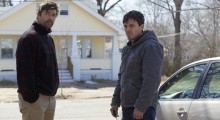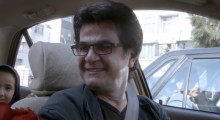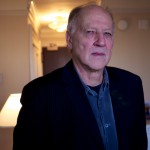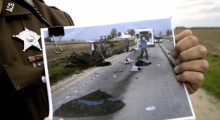Werner Herzog
-
Sundance Dispatch 2: Manchester by the Sea, Lo and Behold and All These Sleepless Nights

The hype machine has gone well into overdrive on Manchester by the Sea, to the point that many not here but monitoring Twitter are already properly irritable/skeptical. I’ll keep it brief: now past the tribulations of Margaret‘s legal travails, attenuated release and masterpiece status (it’s true!), Kenneth Lonergan has made a very, very strong film. Margaret spun out the complications of a moment’s carelessness and tragedy in multiple directions — legally, personally, professionally — from a single starting point. Manchester processes twin strands of tragedy, both immediate and long-term. Immediate: surly drunk Lee Chandler (Casey Affleck) is yanked out of his Boston handyman routine by his brother’s sudden […]
by Vadim Rizov on Jan 24, 2016 -
Dispatches from Sundance, Berlin, SXSW, True/False & Thessaloniki

Sundance SCOTT MACAULAY Check it out: the two top prize winners at Sundance this year, Alfonso Gomez-Rejon’s Me and Earl and the Dying Girl, and Crystal Moselle’s The Wolfpack, both feature as central elements teenagers who stage and film their own versions of classic movies. There’s even overlap between the two films, although Moselle’s Manhattan shut-ins incline more towards Tarantino and Freddy Krueger, while Gomez-Rejon’s teen Pittsburgh auteurs shirk the Romero roots of their hometown for deep dives into the Criterion Collection. For film lovers of a certain age, both Me and Earl and the Dying Girl and The Wolfpack […]
by Filmmaker Staff on Apr 28, 2015 -
Berlinale 2015: Jafar Panahi, Promising Newcomers and the Decline of Terrence Malick

In the weeks leading up to this year’s Berlin Film Festival, the festival’s press office revealed an increasingly enticing succession of titles competing in its main slate, generating very high expectations. Somewhat incredibly, they were met. While the Berlinale’s Competition customarily offers a few good films amongst a lot of mediocrity, the trend was reversed this time around, with easily the most outstanding selection in recent memory. In an equally welcome turn, the prizes awarded by Darren Aronofsky’s jury fully reflected the program’s quality, rewarding the most deserving entries while confirming the Berlinale’s avidly nurtured reputation as the most politically […]
by Giovanni Marchini Camia on Feb 17, 2015 -
Previewing Berlinale 2015: Malick, Herzog, Panahi and More

Given that Wong Kar-wai’s The Grandmaster and Wes Anderson’s The Grand Budapest Hotel kicked off the Berlinale the last two years, the response was less than enthusiastic when Isabel Coixet’s Nobody Wants the Night was announced as this year’s opening film (though, predictably, many a Twitter wag delighted in the film title’s pliability for expressing what it is that nobody wants). The Greenland-set period drama stars Juliette Binoche as Josephine, the wife of arctic explorer Robert Peary, and follows her attempt to rejoin her husband on his mission to reach the North Pole. When an Inuit woman comes to her aid on […]
by Giovanni Marchini Camia on Feb 4, 2015 -
Watch: Werner Herzog on What Makes a Filmmaker

“I think cinema can express our dreams more than any other medium,” begins Werner Herzog in this characteristically quotable conversation at Indiana University. Herzog talks his influences, or lack there of, as well as his belief that his written work will outlast his films. Perhaps it has something to do with his axiom that, “If you don’t read, you’ll never be a filmmaker.” That, and more, above.
by Sarah Salovaara on Sep 25, 2014 -
Kumiko, A Girl Walks Home Alone at Night, Warpaint Highlight Sundance Next Festival

It’s rare that I can recommend nearly every program at a film festival, but that’s the case with this weekend’s Sundance Next Festival in Los Angeles. With events taking place tonight at the Hollywood Forever Cemetery and then this weekend at the theater at the Ace Hotel, the Next Festival is intimate, very cool and with a strong multidisciplinary bent. Alongside several artistic feature highlights from this year’s Sundance Film Festival are shorts, panels and bands, making each program something of an event. Check out the complete line-up at the festival’s site, and here are a few picks of mine: […]
by Scott Macaulay on Aug 7, 2014 -
Ecstatic Truth: 15 Years Of Hybrids Rising

Speaking April 30, 1999, at Minneapolis’ Walker Art Center, Werzog Herzog laid down 12 edicts on the pursuit of “ecstatic truth” in the documentary. “The so-called Cinema Verité is devoid of verité,” Herzog proclaimed in his “Minnesota Declaration,” announcing instead his devotion to “poetic, ecstatic truth” accessible “only through fabrication and imagination and stylization.” He was speaking specifically about his 1992 masterwork Lessons Of Darkness: unfaked, awe-inspiring footage of Kuwait’s oil fields on fire after the Iraq War, framed by a made-up Pascal epigraph and narration from the perspective of an alien intelligence baffled by what it’s seeing. Herzog unrepentantly […]
by Vadim Rizov on Apr 28, 2014 -
Werner Herzog’s Texting and Driving Doc From One Second To The Next

Werner Herzog turned 70 last year, but he’s certainly not slowing down and indeed he seems to be more prolific than ever. The latest film he’s made is surprising, to say the least: a short, 35-minute PSA doc to support the It Can Wait campaign against texting and driving. Interestingly, there’s absolutely no mention of Herzog on the site, and it’s only when you start watching From One Second To The Next that you find out who the man behind it is…
by Nick Dawson on Aug 8, 2013 -
City World Director Brent Chesanek

Among the discoveries at the 2012 edition of CPH:DOX was Brooklyn-based Brent Chesanek’s City World, which is part magic realist children’s adventure tale and part austere landscape documentary. Over precisely framed tableaux shot in his hometown of Orlando, FL — nearly all of them completely absent of people — Chesanek drapes the narration of a young boy mulling the breakup of his family and subsequent move, with his father, to this Southern city. As in another recent film, General Orders No. 9, contemporary landscape photography is presented as historical residue meant to be both meditated on and explicated. Drained of […]
by Scott Macaulay on Jun 5, 2013 -
Werner Herzog on Tom Cruise and Harmony Korine

Last year I interviewed Werner Herzog about his Into the Abyss, and before our talk I quickly re-introduced myself, reminding him that we had worked together when I produced julien donkey-boy over a decade ago. “Ah, yes, I remember,” he said. “You know, I have your film to thank for being cast as the villain in this new Tom Cruise movie.” It was the first I had heard of Jack Reacher, and I expressed a tiny bit of doubt that Harmony Korine’s Dogme ’95 feature was what really secured Herzog a role in a mega-budget action film. “Paramount Pictures is […]
by Scott Macaulay on Dec 21, 2012
